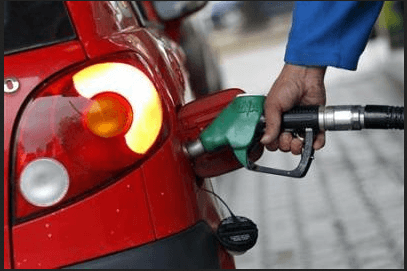
As concerns continue to mount over lack of storage facilities to store oil in the US, the Chamber of Petroleum Consumers, Ghana, (COPEC) is calling on the Government of Ghana to help the Bulk Oil Storage and Transport (BOST) get the needed credit facilities to stock oil for the country.
“We do believe this notwithstanding, however, that the markets are ripe for the Ghana Government to consider helping the Bulk Oil Storage and Transportation ( BOST ) to get a good credit line or an open credit system in place immediately to stock oil at this point for the country’s strategic reserves or stocking needs,” COPEC added in a statement.
This follows reports that for the first time in history, the price of US oil has turned negative due to supposed unavailability of storage space across the US market with some traders allegedly paying for cargo to be returned before the close of the futures market for the month of April on 22/04/20.
Demand for oil has all but dried up as lockdowns across the world have kept people indoors.
As a result, oil firms have resorted to renting tankers to store the surplus supply and that has forced the price of US oil into negative territory.
The price of a barrel of West Texas Intermediate (WTI), the benchmark for US oil, has fallen as low as minus $37.63 a barrel.
In a statement issued by the Chamber, its Executive Secretary, Duncan Amoah, said: “government should also consider getting our local refinery back to productivity in order to process Ghana’s oil locally as we understand some of our producers or Oil fields may be soon forced to shut down production due to lack of storage space globally.”
This according to COPEC should be considered, “so the country does not lose on both the upstream and downstream ends due to the low prices being recorded on the international market currently.”
COPEC also stated that though oil prices especially on the West Texas Intermediate, (WTI) platform is currently trading at -$15 which is about the lowest in several decades, it is very unlikely to see any reductions immediately reflecting at the country’s various pumps.
“It is indeed true that oil prices especially the WTI platform Is currently trading at -$15 which is about the lowest in several decades. Brent however is still trading around $26 as at close of day and as such pump prices are very unlikely to see any reductions as is being expected by a cross section of the Ghanaian public,” the statement noted.
This, COPEC attributes to the fact that the Ghanaian market to a large extent, depends on the Brent benchmark.
“This pricing collapse is largely reflected on crude and has very little direct impact on processed or refined products and by extension local pump prices. Moreover, the Ghanaian market is largely Brent benchmark dependent and as such a collapse on WTI is quite unlikely to have any trickle-down effect on local pump prices here,” the statement added.
COPEC however urged government to be quick in its response, as, “Whatever security guarantees or arrangements that needs to be put in place to forestall any games with the strategic reserves must certainly be robust and efficient so the country does not lose on both the upstream and downstream ends due to the low prices being recorded on the international market currently.”
Find COPEC’s full statement below:
CHAMBER OF PETROLEUM CONSUMERS-GHANA
Social media is currently awash with news of the collapse of Oil prices internationally with a section of Ghanaians demanding this price collapse immediately reflect at the pumps.
Yes, it is indeed true that oil prices especially the WTI platform Is currently trading at -$15 which is about the lowest in several decades.
Brent however is still trading around $26 as at close of day and as such pump prices are very unlikely to see any reductions as is being expected by a cross-section of the Ghanaian public.
The disparity in the two benchmarks is largely due to a supposed unavailability of storage space across the US market with some traders allegedly paying for cargo to be returned before the close of the futures market for the month of April on 22/04/20.
This pricing collapse is largely reflected on crude and has very little direct impact on processed or refined products and by extension local pump prices.
Moreover the Ghanaian market is largely Brent benchmark dependent and as such a collapse on WTI is quite unlikely to have any trickle down effect on local pump prices here.
We do believe this notwithstanding, however, that the markets are ripe for the Ghana Government to consider helping The Bulk Oil Storage and Transportation ( BOST ) to get a good credit line or an open credit system in place immediately to stock Oil at this point for the country’s strategic reserves or stocking needs.
The Government should also consider getting our local refinery back to productivity in order to process Ghana’s oil locally as we understand some of our producers or Oil fields may be soon forced to shut down production due to lack of storage space globally.
Whatever security guarantees or arrangements that needs to be put in place to forestall any games with the strategic reserves must certainly be robust and efficient so the country does not lose on both the upstream and downstream ends due to the low prices being recorded on the international market currently.
Signed
Duncan Amoah
Executive Secretary
The post Help BOST store more oil over challenges from world price drop – COPEC to government appeared first on Citinewsroom - Comprehensive News in Ghana, Current Affairs, Business News , Headlines, Ghana Sports, Entertainment, Politics, Articles, Opinions, Viral Content.
Read Full Story
















Facebook
Twitter
Pinterest
Instagram
Google+
YouTube
LinkedIn
RSS